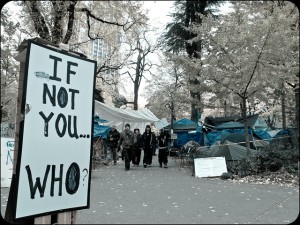by Ahjamu Umi
I’m a revolutionary activist. I’m also a writer with a publishing contract. I believe the role of the artist is to raise the consciousness of the people. The capitalist pull is to use your artistic skills not to advance ideas of social consciousness, but to make money. Since many artists are relying on their craft to earn a living, the necessity to compromise their art for the sake of the dollar forces many artists to present their work in a way that ends up saying nothing of value. The only reason I can sit here today and write books is because of those people who came before me and struggled mightily to win the rights I now enjoy and benefit from. Had those people not waged that struggle, I could not do what I do now, so I feel an eternal obligation to fulfill my responsibility to justice. I believe it’s important for artists, whether singers, musicians, poets, painters, writers, etc., to wage this struggle on all levels.
If you want to participate in my brand of artistic expression, I invite and encourage you to join me on Saturday, February 18, 2012 at Reflections Coffee Shop/Talking Drum Bookstore in Portland (446 NE Killingsworth) for a reading from 3-5pm. Let’s fight the power and use art as a vessel for positive human ideas!
Ahmed Sekou Ture, that great revolutionary Pan-Africanist, spoke of culture being the sum total of all the people’s experiences. He talked about cultural workers being vehicles to spread revolutionary ideology. I see my role as one of carrying that torch. That’s why I wrote my novel Find the Flower that Blossoms so that I could propagate the values of social justice.
Find the Flower that Blossoms expresses concepts of social justice, and reaches a large audience. The book is popular with young women who have never belonged to any type of social justice organization. The book is available overseas and is doing well in Europe. I am reaching a wider audience with this book, being in publication for just one year, than I’ve made writing non-fiction political articles for 20 years. I’ve received literally dozens of response from women who first identified with my main character; young, white, Ashley Summers, and her struggles around her personal dysfunction and low self-esteem. Then, as they get wrapped up in the storyline, they take the journey with Ashley as she spirals downward to hit rock bottom while fighting to try and save her life. What these women are telling me is they see the societal aspects that influence and affect Ashley’s struggle, like her self-doubt, feelings of inadequacy, and all the other dysfunctions that define how sexism impacts women. They also see the racist components that express themselves in Ashley’s experience as she maneuvers through them. The interesting thing is that these women see these sexist and racist components in Ashley’s experience without seeing them in their own lives. This is the power of literature and this is the power the author has when she/he decides to dedicate their craft to issues of social justice. Also, stay tuned for the second and third installments of this novel series entitled Beautiful Flower, Deadly Thorns and The Nuabaas!







